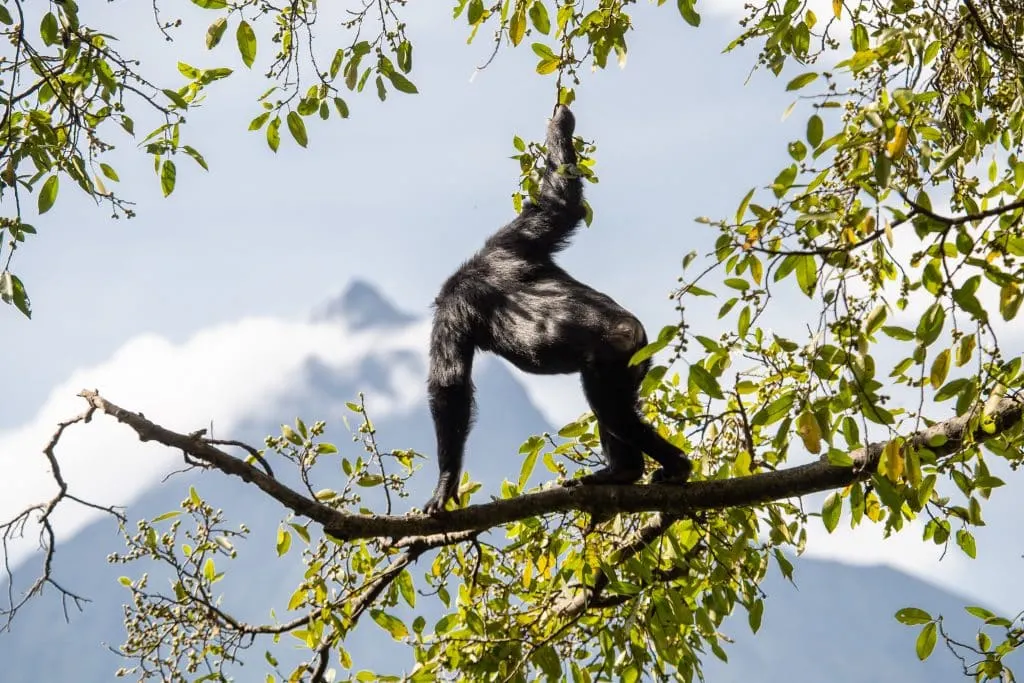Have you ever wondered what it must be like to pack up your life for a year, do an overland trip throughout Africa, and live in Virunga National Park?
How about what it must feel like to get stuck in the Democratic Republic of the Congo (DRC) on the last leg of your trip due to a global pandemic? Read further to learn more about an intrepid couple stranded in Virunga National Park.
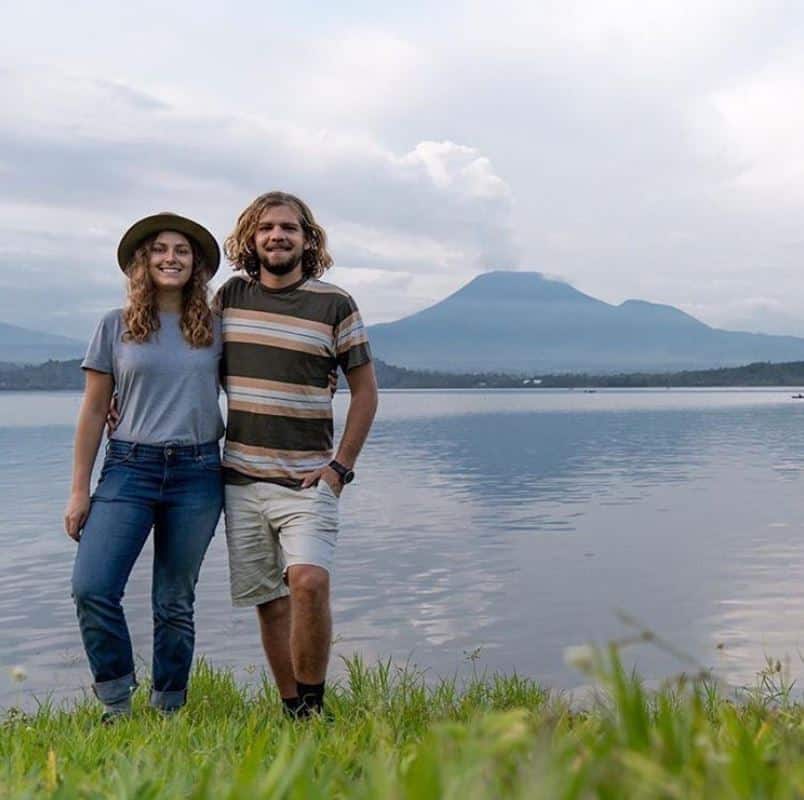
During the Covid-19 pandemic, Nick and Kate (of Woza Rafiki) traveled to Virunga National Park in the DRC.
COVID-19 was looming over the African continent; the pandemic rapidly unfolding, with many countries experiencing hard lockdowns and cases rising exponentially.
At the time that Nick and Kate were crossing the Rwandan border to enter the Virunga National Park in the DRC, the borders in Africa were still open, and the true nature of the threat was not completely understood yet.
They planned to complete a four-day gorilla trekking tour in the DRC. Little did they know this endeavor would turn into a 45-day stay with experiences that no other tourist could dream of.
Follow the story of Nick and Kate, who were stuck for 45 days in Virunga National Park in the DRC by reading below, or skip to the different headlines you are interested in:
Woza Rafiki
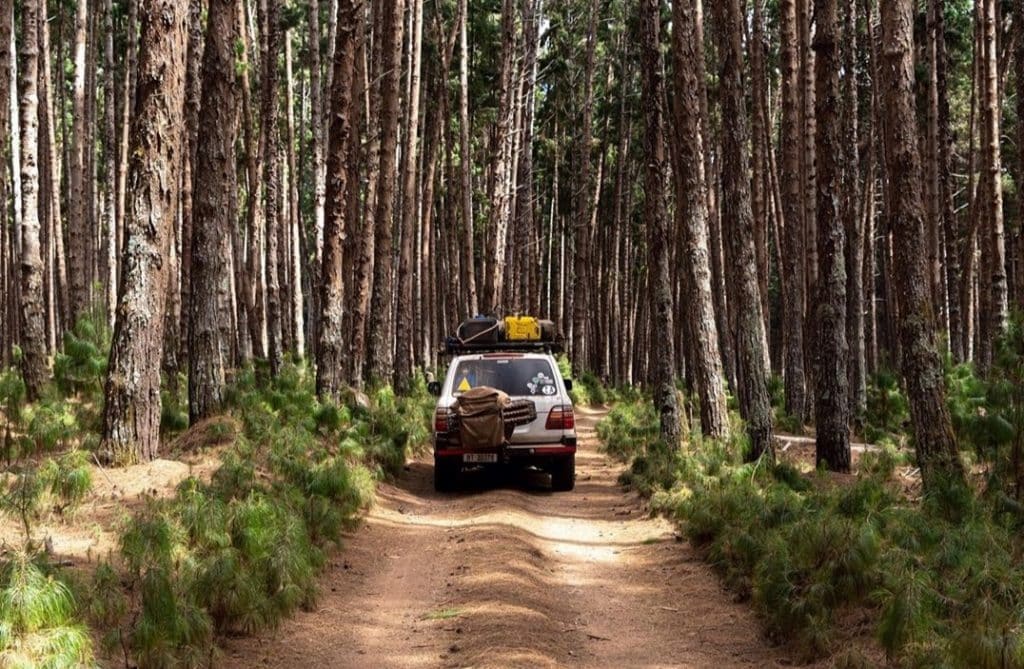
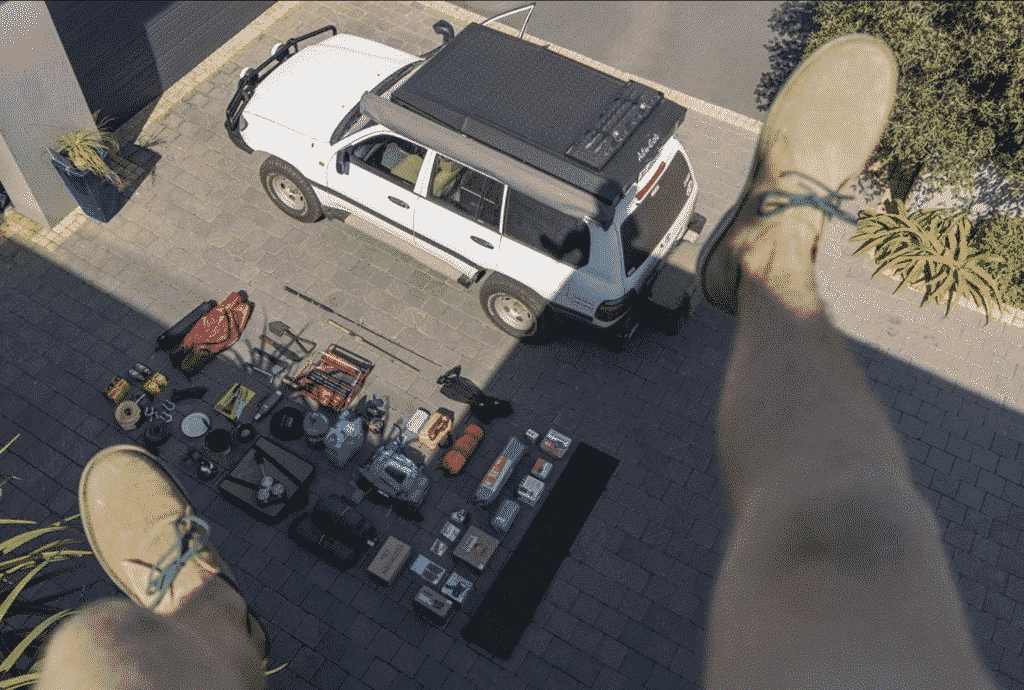
Woza Rafiki is the blog created by Nick and Katie to document and share their intrepid travels throughout Africa. They embarked on an overland journey, self-driving their way through multiple African countries in their 1999 Toyota Landcruiser 105, Rafiki.
Nick is a photographer from Durban, South Africa, with a passion for capturing nature and his surroundings through a camera lens. In his attempts to avoid working behind a desk, he decided to chase his dreams of being outdoors and in nature.
He believes that meaningful connections and interactions with the natural world are essential means for positive progression toward a sustainable future.
Kate is a master’s graduate from the Graduate School of Architecture (GSA), University Johannesburg, with an interest in passive design that is responsive to the natural environment.
She is creative, advocates for ecologically sustainable landscapes, and has a love for the outdoors and nature that has been fostered from a young age.
A Journey Through Africa and Covid-19
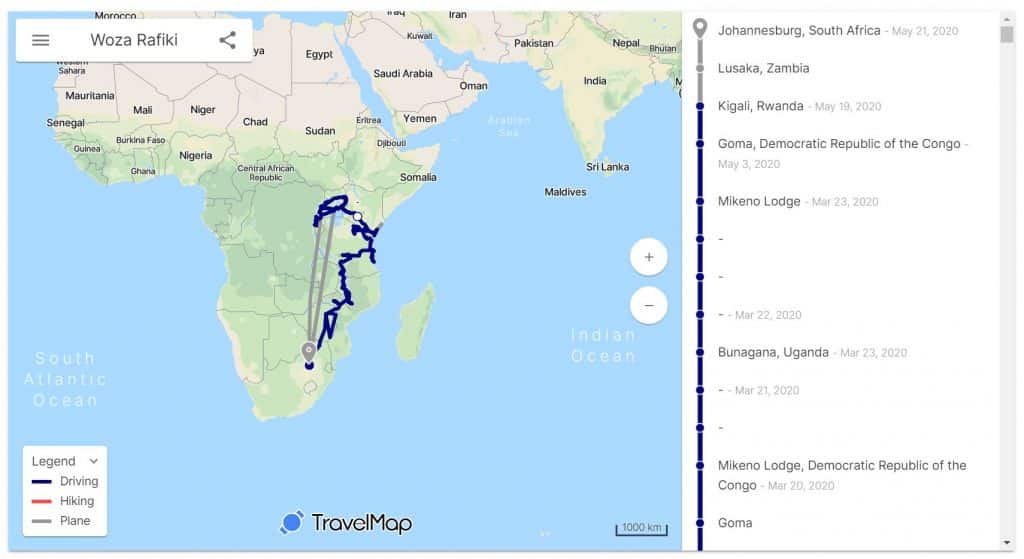
This expedition into the Virunga National Park was at the tail end of a year’s Overlanding travels through Southern and Eastern Africa (follow their story here).
They started their trip in South Africa, and Uganda was their turning point before they continued back home. But they couldn’t leave before the once-in-a-lifetime experience of seeing the mountain gorillas!
They planned to complete a four-day gorilla trekking tour in the DRC before undertaking the more than 3000km journey home. Little did they know that a four-day package to Virunga National Park would turn into a 45-day stay with extreme experiences!
A race against time (and closing borders)
On Friday, the 20th of March, only seventeen Covid-19 cases were reported in Rwanda. These were mostly isolated to the capital, Kigali, and no warnings of a lockdown had been mentioned yet. Kate and Nick were 160km away in Gisenyi, getting ready to cross the border into the DRC.
They parked their car at Discover Rwanda for the four days they would be in Virunga National Park. They had booked the Le Petit Virunga package, which includes a mountain gorilla trek and a Nyiragongo Volcano trek, with an overnight stay at the summit of the volcano. The experience of a lifetime before they started the road trip back home to South Africa!
When the couple arrived at the border, they were informed that they were the last tourists allowed into the park. The tourism operations at the park had to close due to the threat of Covid-19. Firstly, because global tourism was shut down, but more importantly for the safety of the mountain gorillas.
Gorillas are a very close living relative to humans: we share 98% of our DNA with gorillas. Gorillas are also extremely susceptible to catching human diseases. Scientists have already indicated that mountain gorillas are likely susceptible to the Covid-19 virus. It would be catastrophic should Covid-19 be passed onto the gorillas and an outbreak occur within an already rare and endangered species.
The rest of their Friday was spent relaxing in front of the fireplace with the lodge cats before the big trek to the Humba family of mountain gorillas in the forest at the base of Mount Mikeno. Usually, the groups that go on the treks are tiny, but it was extraordinary for them to have the entire experience all to themselves!
Read more about their encounter with the Humba family of mountain gorillas on their blog, or by reading further.
After their unique trekking experience on Saturday, their weekend was interrupted with bad news: Rwanda had suddenly closed the Grande Barrier border with the DRC without warning. And their car was still in Gisenyi, Rwanda, while in the DRC. What followed next was a marathon of hours trying to find a way to cross the border and get home.
Safety in the DRC
Twelve rangers (among 17 people) were killed in Virunga National Park in the DRC earlier this year in one of the worst massacres in the park’s recent history.
Aside from the rangers killed, a driver and four civilians were shot and killed. Two other civilians and four rangers were injured, with one in critical condition. The park blamed members of a Rwandan rebel group for the attack.
A series of unfortunate events
Only Rwandese and Congolese nationals were allowed to cross the Grande Barrier border to go home. Unable to cross, Kate and Nick organized for someone in Gisenyi, Rwanda, to drive the car across the border on their behalf.
Interest in Mountain Gorilla Trekking? Look at our recent article on Mountain Gorillas in Central Africa.
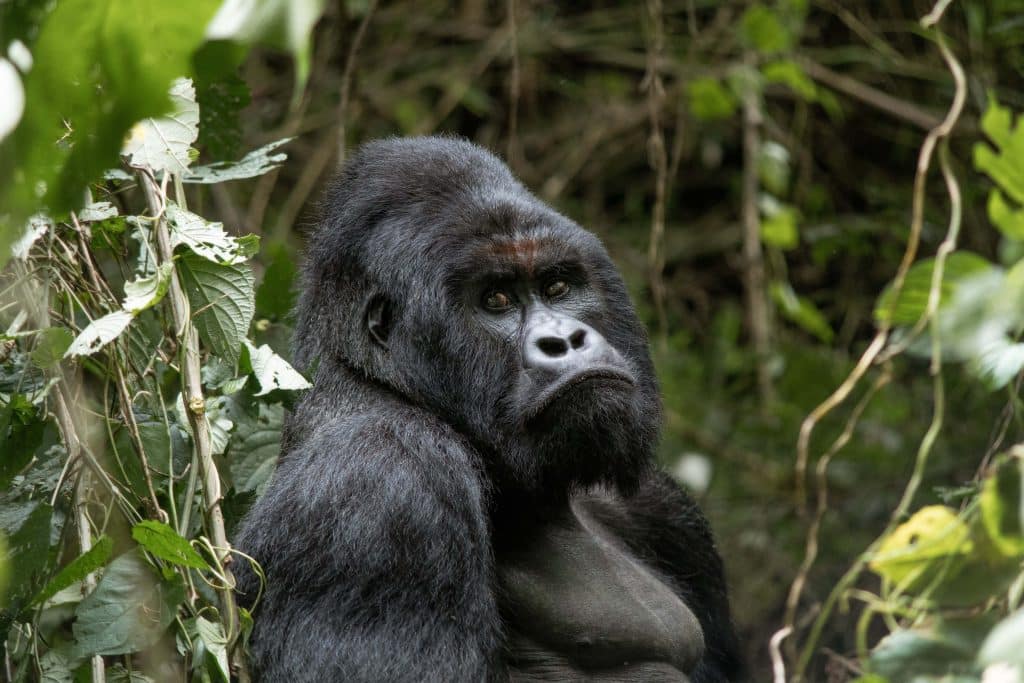
After hours of planning, discussing, and calling officials at the resort’s bar, more news broke. Owing to the coronavirus pandemic, Uganda was going to close its borders on Sunday, 22nd March, at midnight. So, they stayed up well past midnight trying to adapt to the plan.
The following day, on Sunday, 22nd March, Kate, and Nick were escorted by a ranger convoy to the Grande Barrier border post at Goma. On the Rwandan side, their contact was stopped at a roadblock before he could reach the border. They faced more obstacles and ran out of time, so Nick and Kate walked to the Rwandan officials to plead their case. After a little while, the car arrived at the border, and they were given the go-ahead for Rafiki to cross.
Next, they ran into a little hiccup with the next set of Rwandese officials not allowing the car to pass without paying unofficial fees. But eventually, all the paperwork was signed on the DRC side. Nick and Kate were reunited with Rafiki and could proceed to the Bunagana border post between Uganda and DRC before it closed at midnight. Finally, the plan was going accordingly.
It was another 40km drive to the border post. Everything seemed to be working out. But upon arrival at the border, it was surprisingly already closed despite official communication saying it would only be closing at midnight. The officials were not letting anyone through, not even Ugandans.
Hungry and defeated, the convoy escorted Nick and Kate back to the lodge. After the day’s border chase along terribly bumpy and dusty roads, they were exhausted. With the Rwandan and Ugandan borders closed and South Africa in lockdown, they accepted that they were stranded in Virunga National Park.
What followed turned out to be the experience of a lifetime, with more gorillas (in the orphanage) and chimpanzees encounters than any tourist has ever been privy to.
Trapped in Virunga National Park
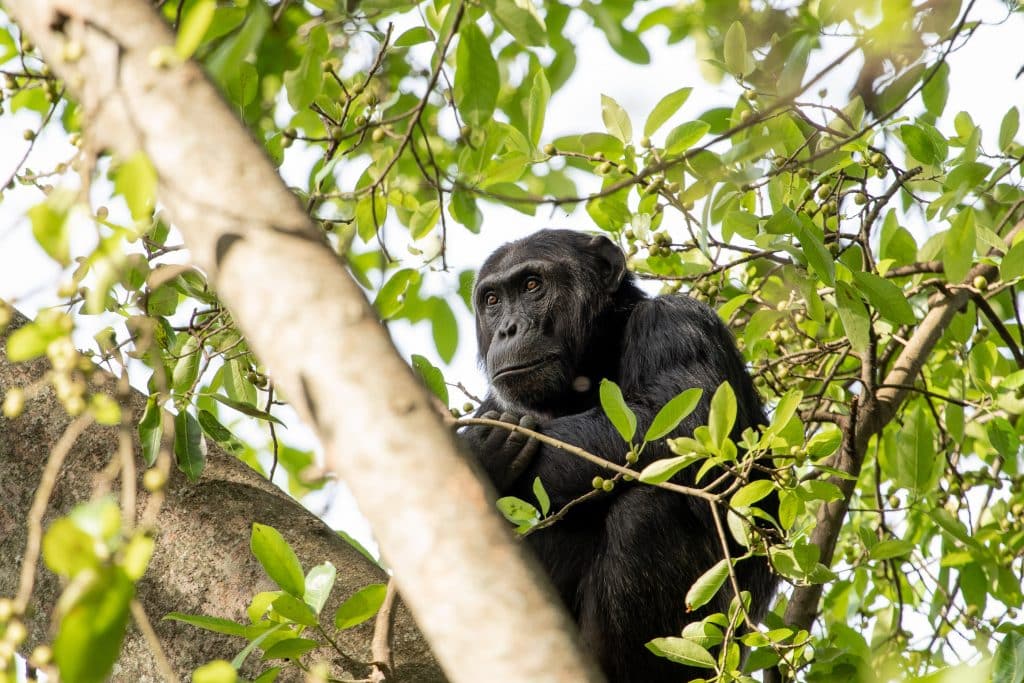
The pair offered to help out around the lodge to keep themselves busy.
Kate is well-versed in visual communication and design, so she helped design marketing material and merchandise. Nick offered to assist with the park’s Chimpanzee habituation program by sharing his photographic expertise to capture images of the local family.
His photos helped to identify the group’s individuals for tracking and identification purposes for the park.
Gorillas and Chimpanzees
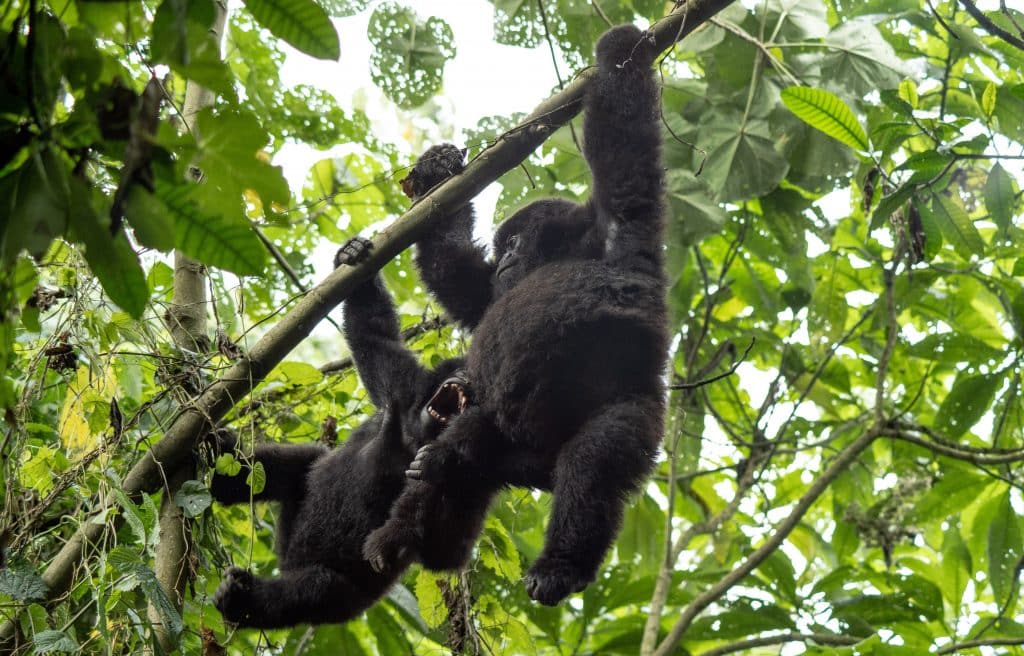
Bukima, the starting point for the gorilla treks, is located on Mount Mikeno in the park’s southern sector. This area is home to eight gorilla families. Nick and Kate trekked the dense montane forest undergrowth for roughly an hour until they discovered the Humba family.
The Humba family consists of thirteen members: two silverbacks, four adult females, one teenager, two juveniles, and four babies as the only guests at Virunga National Park, Kate and Nick were the only onlookers except for their pisteurs (trekkers) and rangers who accompanied them.
“There is no doubt these creatures are profoundly powerful and ought to be respected, however, they are mostly docile creatures showing immense intelligence and intricate family structures and bonds.”
Woza Rafiki
A curious juvenile roly-polied almost into the group of onlookers, eager for a closer inspection. Hastily, they backed up as far as they could against the surrounding bushes, carefully observing the required 10m separation.
It’s an experience like no other: hearts racing with excitement, completely immersed within the family group with gorillas all around them. Babies playfully wrestled each other and swung from branches as mothers lay calmly observing proceedings and big silverbacks eagerly munched away on some shrubbery. The local pisteurs communicate with the gorillas using grunt-like sounds, assuring them of a non-threatening presence. They know the gorillas very well and admirably interpret their behavior.
Senkwekwe Gorilla orphanage
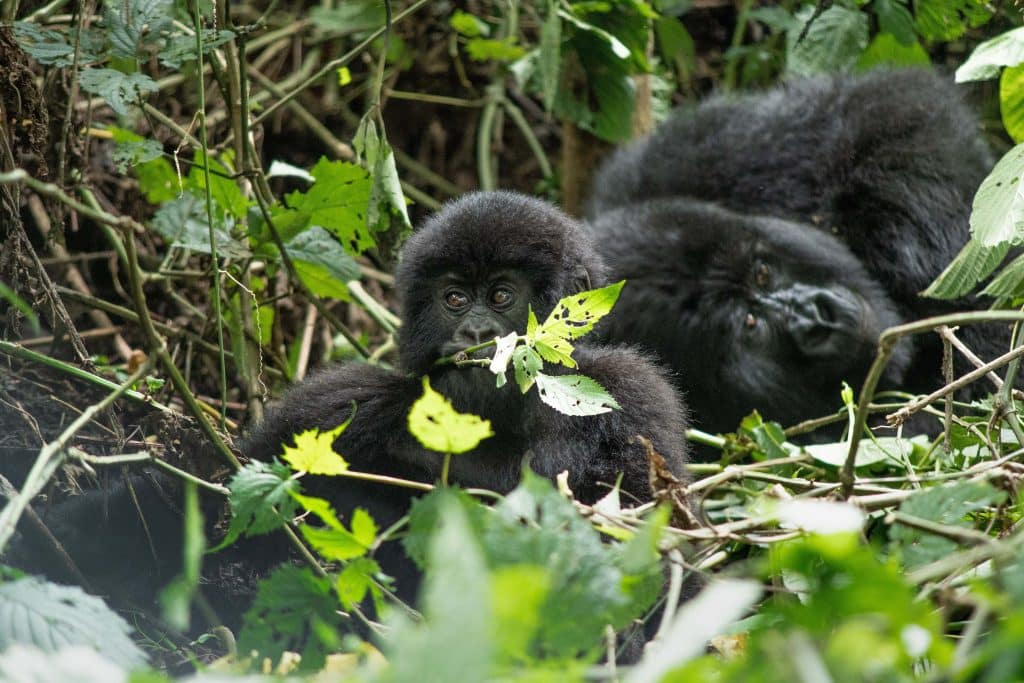
Nick and Kate were lucky enough to spend much time with the gorillas in the orphanage during their extended stay in Virunga National Park.
Senkwekwe Gorilla orphanage is the only one of its kind worldwide caring for mountain gorillas in captivity. The center was established in 2009, and currently, four gorillas are under the guardianship of the head Caretaker, Andre Bauma, and his excellent team. These gorillas have become orphans, separated from their families due to poaching. The Senkwekwe caretakers have dedicated their lives to caring for – as they refer to them – the children.
Chimpanzees
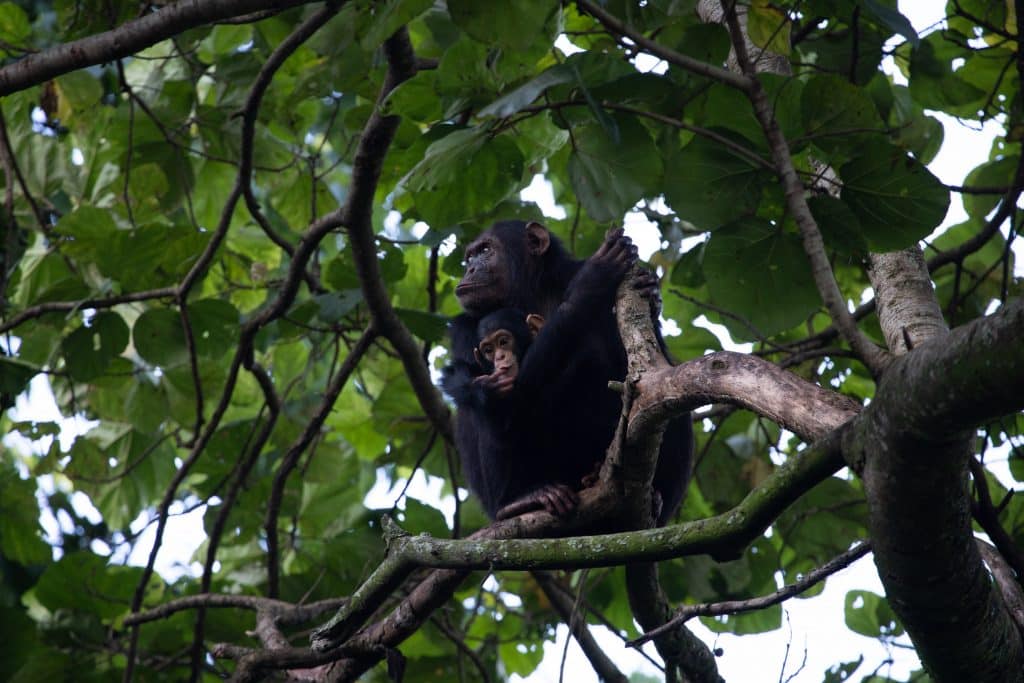
A forest surrounds the lodge where Nick and Kate stay. This is where the family of 18 chimpanzees can be found. Other groups of chimpanzees are in the park, but those living in rebel-held areas, so Nick could not photograph them.
Every morning for three weeks, Nick photographed these chimpanzees to allow the park to catalog them and identify the individuals. This allowed Nick to observe the chimps in a very familiar way as he got to know them.
Nick observed chimpanzees and gorillas in the wild while he and Kate were trapped in Virunga National Park. He noted that gorillas are such gentle giants, whereas chimps can easily be violent and unpredictable.
Visit Virunga National Park
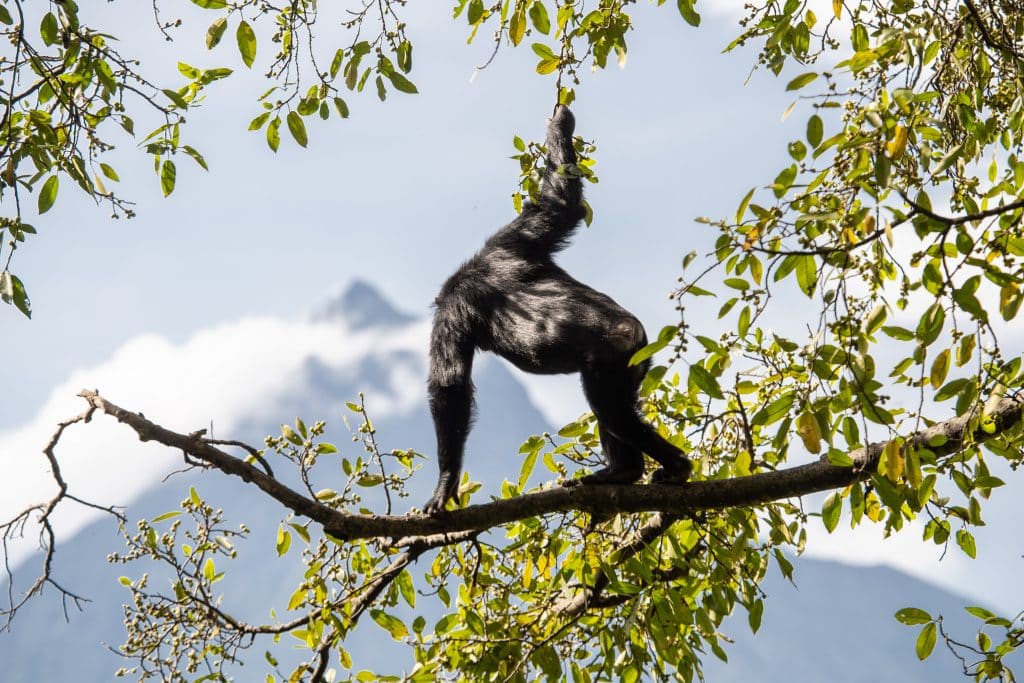
Virunga National Park is in the Albertine Rift Valley, North-Kivu Province, Democratic Republic of Congo. It was founded in 1925 to protect the rare and endangered mountain gorilla. It was renamed from Parc Albert to Virunga National Park in 1969.
Virunga, derived from the Kinyarwanda language, means volcano. And a fitting name it is given the chain of volcanoes within the park boundaries, two of which – Nyamuragira and Nyiragongo – are the most active volcanoes in Africa. The latter is home to the world’s largest lava lake and last erupted in 2002.
Virunga is Africa’s oldest and most biologically diverse park and was inscribed as a UNESCO World Heritage site in 1979. The park is incredibly vast, covering an area of 7800 square kilometers, encompassing an outstanding diversity of landscapes ranging from the forest-clad slopes of volcanoes to the snow-capped Rwenzori Mountains of the Moon, grassland savanna, and marshlands. An abundance of species inhabits these ecological havens, including an impressive 706 bird species and twenty-two primate species. Three great apes are the mountain gorilla, eastern lowland gorilla and eastern chimpanzee. Virunga is the only park known globally to host such a number of great apes in one area.
DRC
The park is located in an area that has been racked by instability, devastated by war, and impacted profoundly by armed conflict. Several armed groups and militia operate within the park, presenting its management with many challenges to protect the park and its communities from poaching, deforestation, and political instability.
The park’s custodians include over 700 park rangers of the Congolese Institute for Nature Conservation (ICCN). Rangers and staff have dedicated their lives to safeguarding the park’s communities and natural heritage, especially the endangered mountain gorillas. The park is home to a third of the world’s population.
Tours and experiences
We have a blog completely dedicated to everything you need to know if you want to go on a trekking tour to the Mountain Gorillas in Central Africa.
Safety
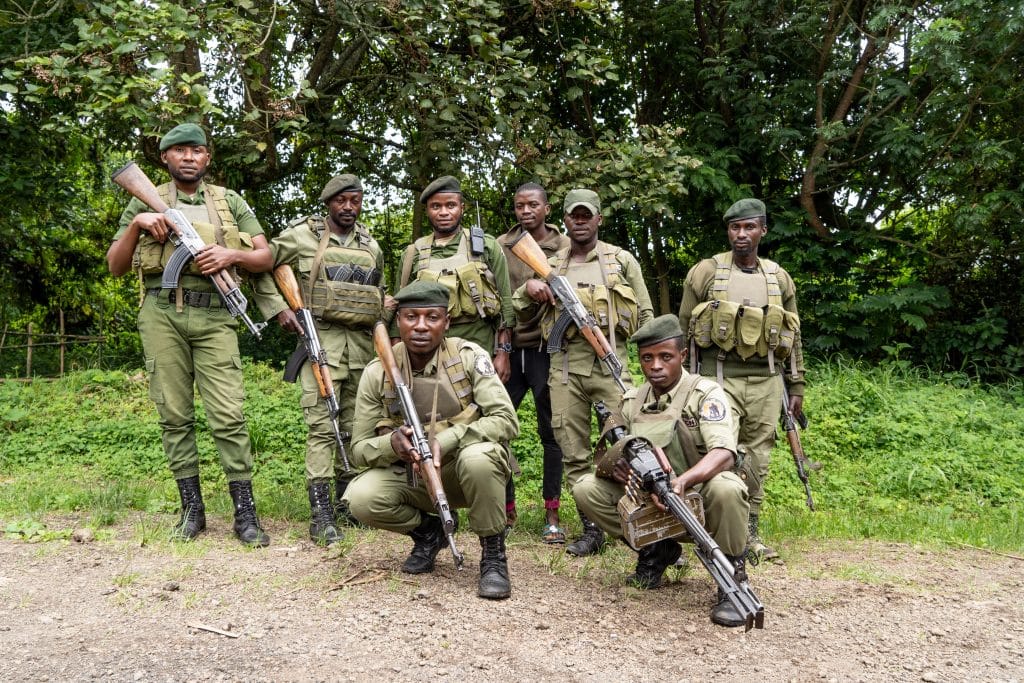
Due to an increased rate of civil unrest, avoiding some types of traveling to the DRC may be recommended. Convoy vehicles with armed guards will accompany tourists in the National Parks.
Armed groups in North and South Kivu, Orientale provinces, northern and central regions of the Katanga province, and the eastern section of Maniema have been known to pillage, steal automobiles, take hostages, sexually assault, murder, and carry out violent operations in which civilians are indiscriminately targeted.
Moreover, there have been several Ebola outbreaks in the country since 2010. In 2019, the disease also spread to the major city of Goma, causing the WHO to declare the outbreak a Public Health Emergency of International Concern.
There certainly are risks to consider when traveling to this area. Better be well-informed and ready than be caught unaware.
Booking procedures for gorilla permits in DRC
You can either book directly with the Virunga tourism office in Goma or contact a tour advisor. Booking is advised at least 4 months before the trekking date to ensure timely planning and a smooth flow of operations.
The gorilla trekking permits of the Virunga national park are the most affordable at 400 USD; however, lately, the park sells the package along with the accommodations and transport. For more information, take a look at our Mountain Gorillas Trekking article.
Summary of Virunga National Park and the DRC
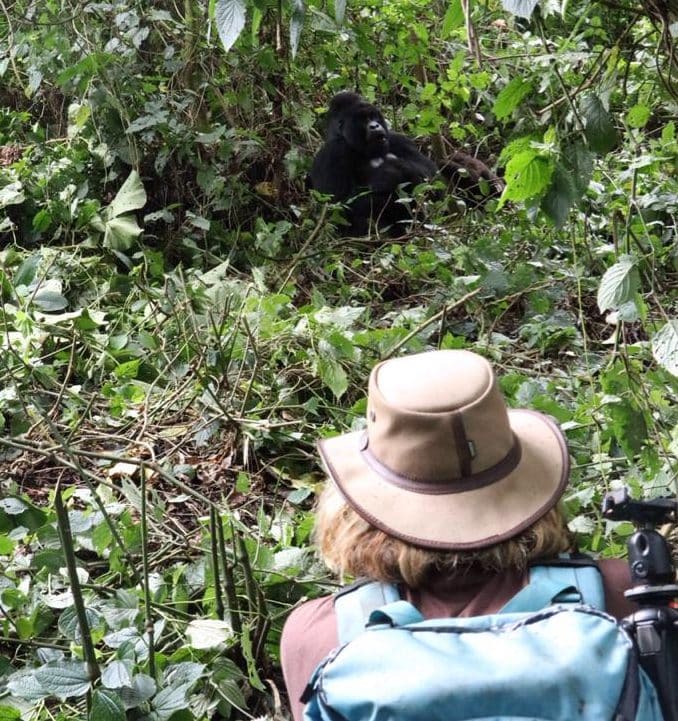
Nick and Kate (of Woza Rafiki) traveled to Virunga National Park in the Democratic Republic of Congo (DRC). They planned to complete a four-day gorilla trekking tour in the DRC but this turned into a 45-day stay, with experiences afforded to them that no other tourist could dream of.
Did you enjoy this article and want to read more about other places to adventure and encounter wild animals? Then check out our blogs, where we write all about The Top 10 African Safari Parks.
Currently dealing with Ebola and Covid-19, Virunga National Park is facing one of its greatest threats yet. Please consider helping the park in its conservation efforts by donating via virunga.org/donate.
Follow Nick (@nickphilipson) and Kate (@katiemaykrone) on their adventures on their Blog & Instagram Woza Rafiki (@woza_rafiki).
- Top 5 Rarest Animals in the World - April 15, 2024
- Mongoose Meets One Of The Deadliest Snakes Alive - April 8, 2024
- Watch: Komodo Dragon Swallows Baby Goat In Seconds - March 28, 2024

